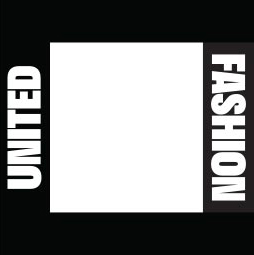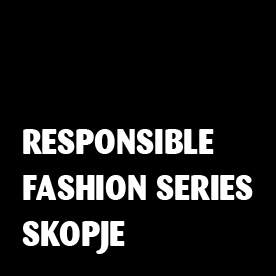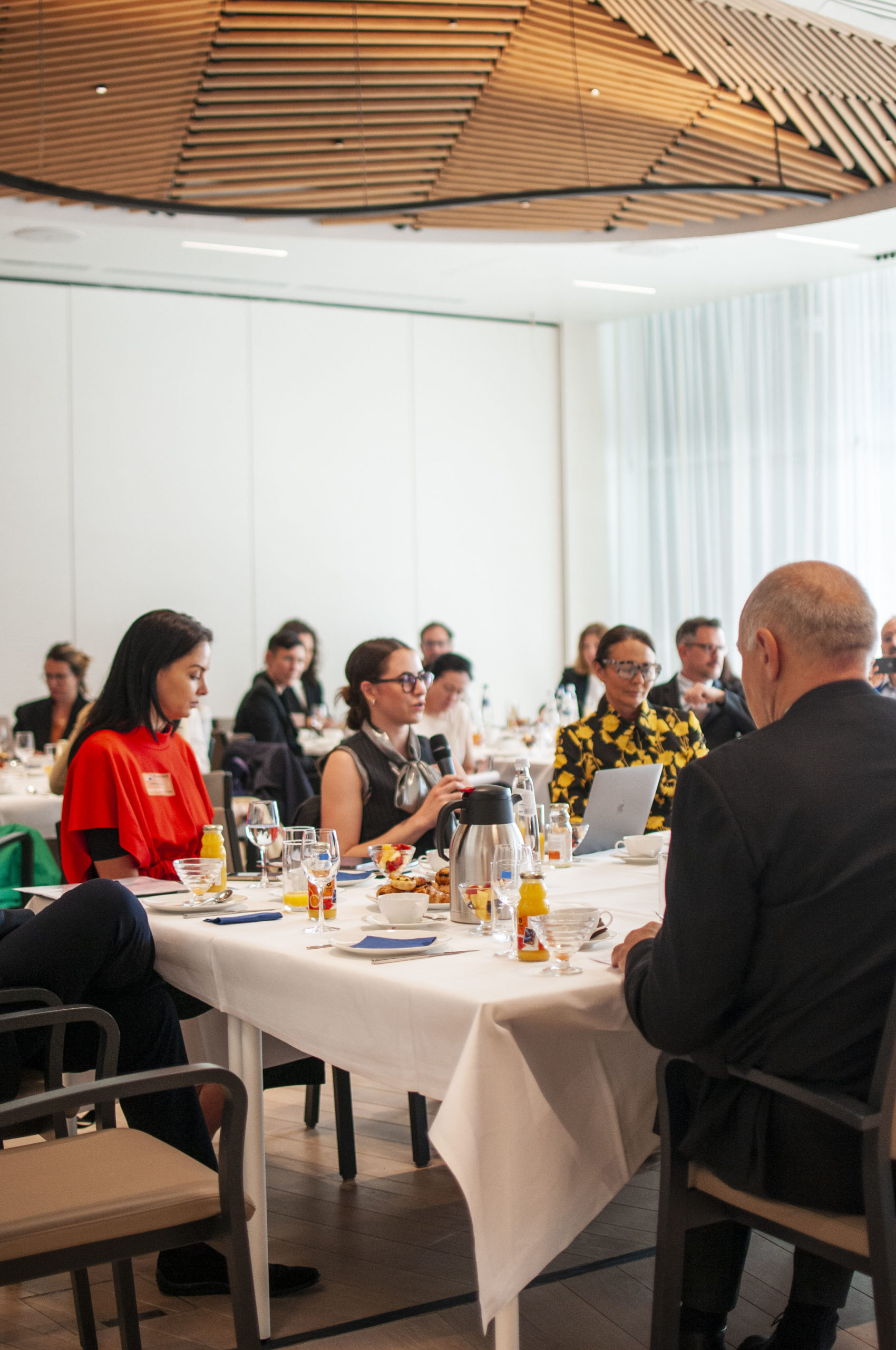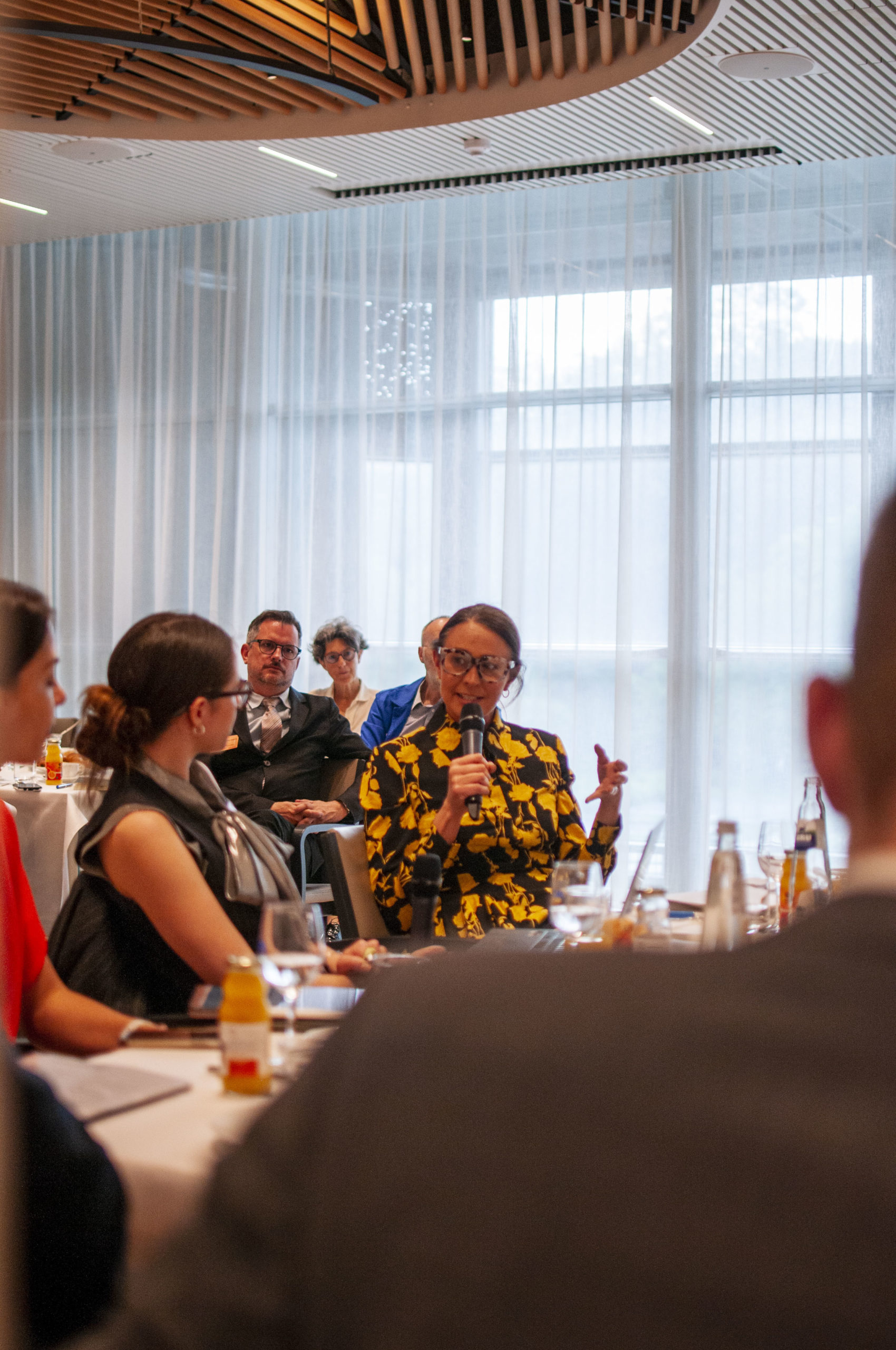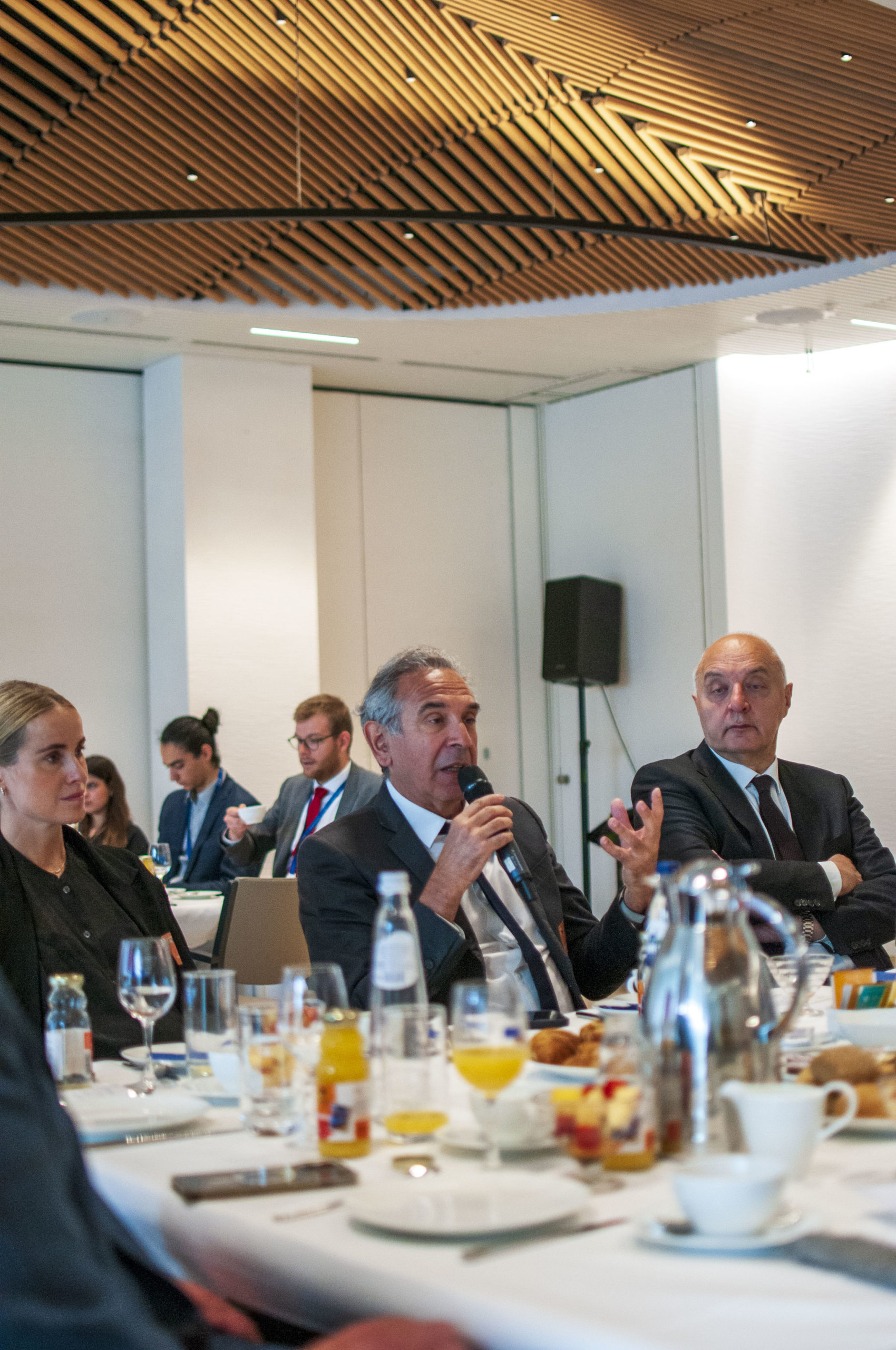The European Fashion Alliance (EFA) held its first political fashion round table in Brussels to announce a European wide industry survey which will result in a report on the status of European fashion. The report and positioning of the European fashion industry on sustainability and policy framework will be presented during EFA’s conference in Brussels end of 2023.
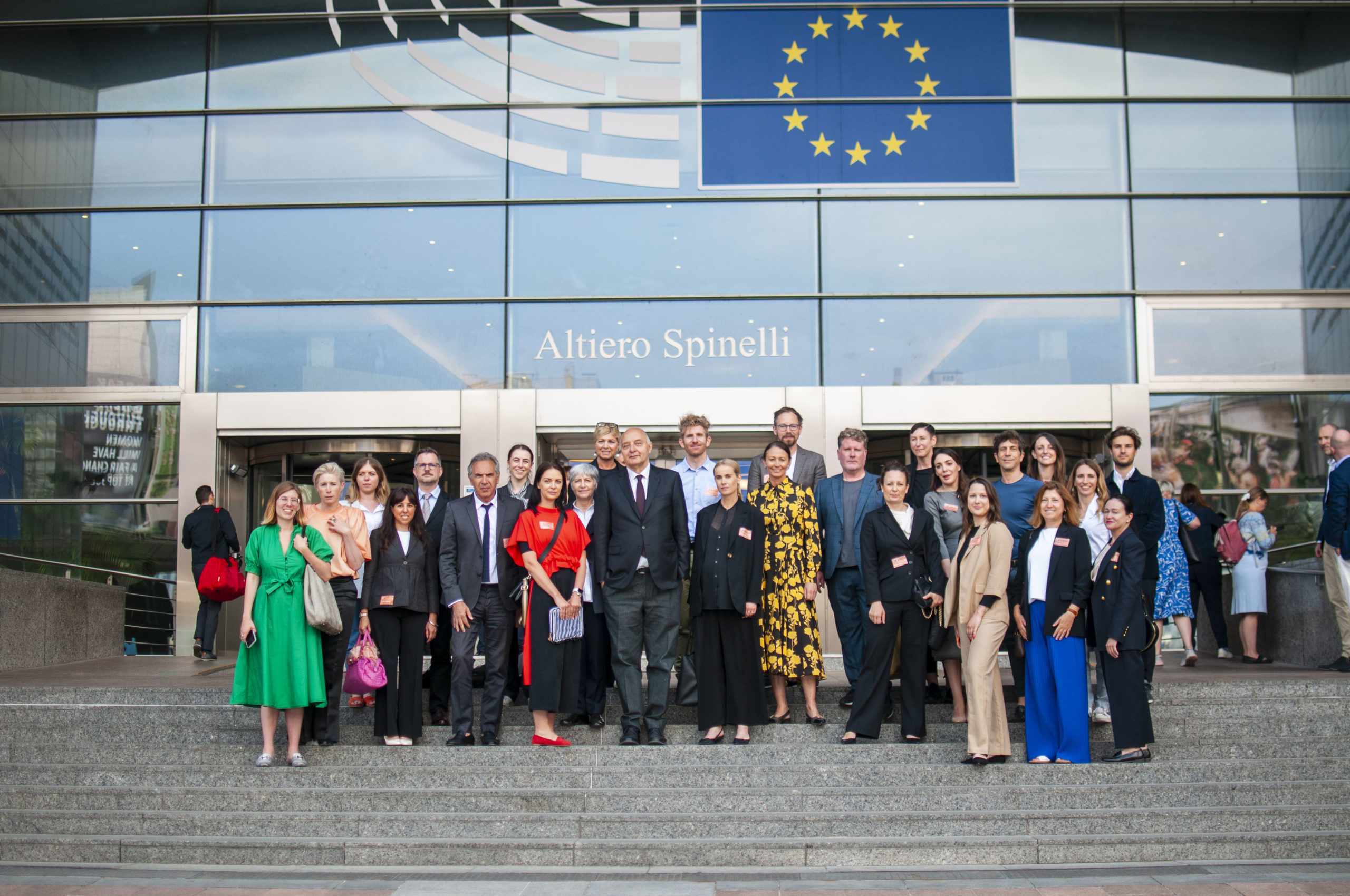
Brussels, 14.06.2023: Last Wednesday June 7 the European Fashion Alliance held its first political round table in Brussels. The event was opened by Thierry Breton, EU Commissioner for Internal Market and Dr. Christian Ehler, Member of the European Parliament. “We are here to help you in this turning point of your sector. If there is an industry that is heavily involved in supply chains, it is the one of fashion. We strive for all textiles placed on the European market to be long lived, recyclable and respectful and have several EU initiatives on the way. Firstly, the Ecodesign regulation to boost sustainability and circularity. Secondly, the digital labelling with a digital product passport. Thirdly, the revision of the waste framework directive, which will reduce textile waste. The ambition of this textile strategy together with these initiatives will only bear fruit if we can translate this with the entire ecosystem into commitment and actionable measures,” so EU-Commissioner Thierry Breton on the upcoming EU regulations. The importance of creativity and innovative strength was emphasized, but also the craftsmanship tradition of the European fashion industry. The central topic was the positioning of the European Fashion Alliance to the upcoming European legislation of the Ecodesign for Sustainable Products Regulation (ESPR) and the associated obligation of a Digital Product Passport (DPP).
The European Fashion Alliance places creativity at the heart of its ambition, recognizing it as the driving force behind the industry’s innovation power. By fostering an environment that presents and supports creativity, the alliance aims to elevate European fashion on social and political level as source for solutions. “We have to start thinking of being proud to be part of a creative and cultural industry. We must address that creativity has a value in our society and it is the root of everything EFA wants to address. When we talk about new ideas, techniques and processes, craftmanship and industry, we must see them as a hymn to creativity. To protect it, we have to provide supporting regulations for European as well as all imported products. Traceability and transparency, holistic durability, stopping overproduction, respect for social sustainability and human rights, Intellectual property, must be the key elements to protect what we define as creative fashion.” so Carlo Capasa Board Member of the European Fashion Alliance and Chairman of the Camera Nazionale della Moda Italiana on the future of Creativity.
The European Fashion Alliance acknowledges and supports the Ecodesign for Sustainable Products Regulation and calls for the consideration of the unique specificities of creativity- driven fashion products in the implementation of feasible, yet ambitious, eco-design requirements. In that respect, EFA members have notably addressed the question of durability of fashion products, a key aspect in terms of sustainability which must be considered in a more holistic and of course measurable way, with both its intrinsic and extrinsic characteristics, and should not be limited only to functional robustness. Pascal Morand, Board Member of the European Fashion Alliance and Executive President of the Fédération de la Haute Couture et de la Mode additionally states that “EFA supports the ban of destruction of unsold goods, but this requires a clear definition that these goods are fit for consumption and sale. Besides, upcycling and recycling in general cannot be considered as mere destruction as they also encompass virtuous practices. These are very much part of the circular economy mentality and business models displayed by innovative and creative designers” EFA’s full position on the ESPR can be found here.
EFA supports the provision of relevant, accurate and reliable information to the consumers and the digitalization of such information as foreseen with the Digital Product Passport. However, EFA strongly warns against any measure that would imply disproportionate administrative and technological burdens on businesses and especially on SME’s, and would disregard, in particular, the challenges related to the textiles’ long and multidimensional supply chain. “For the first time, with the EFA, European policy makers found an adequate partner to talk about matters of European Fashion. We need EFA to discuss how the European Union makes use of future spending programs to achieve the desired outcomes in your sector. We can’t discuss the future of the fashion sector without having the European Fashion Alliance as our conversation partner.” so Dr. Christian Ehler, Member of the European Parliament.
Caroline Rush, Board Member of the European Fashion Alliance and CEO of the British Fashion Council adds that “European collaboration is an imperative step in the protection of creative businesses. At the British Fashion Council, we recently refocused our strategy to champion British fashion as a creative force on the world stage, focusing on responsible growth, relentless innovation and the global and local amplification of the industry. With both the British Fashion Council and the European Fashion Alliance placing creativity at the heart of our ambitions, we recognise the importance of and value in cross-country collaboration in creating impactful change.”
The European Fashion Alliance also announced the first European survey “Status of European Fashion” at the round table. The survey serves as basis for an industry report that will be presented in Autumn 2023 at the next EFA-Conference, to which decision makers of the European fashion industry and EU policy maker will be invited. “With our European wide survey, which will go live on europeanfashionalliance.org as of June 15th, we will collect the current state of knowledge on upcoming European legislative proposals and directives plus the sustainability status of brands. Not only facts and figures, but also experiences of the fashion industry are of high importance to us as this will allow EFA to propose concrete and measurable calls for action.” says Scott Lipinski, Chairman of the European Fashion Alliance and CEO of the Fashion Council Germany.
Federica Marchionni, CEO of Global Fashion Agenda, highlights the importance and relevance of the European Fashion Alliance which was established in 2022 by 29 likeminded founding members: “The current business model of the fashion industry is unsustainable and needs to change to align with the Sustainable Development Goals. I am particularly proud being part of EFA as collaboration amongst fashion councils and fashion weeks across Europe represents an example on how Ambition can be turn into Action guiding the industry and its stakeholders on required change.”
Starting from 15th June 2023 find the survey here: www.europeanfashionalliance.org
Note to the editors: please encourage your readers to participate in EFA’s survey. There is a QR code which brings the reader directly to the survey. It is important to activate as many organisations as possible to advocate accordingly to Brussels.
If you are interested in interviews or further information, please contact:
Press contact:
press@europeanfashionalliance.org www.europeanfashionalliance.org
ABOUT EFA
The European Fashion Alliance is the first transnational alliance of European fashion institutions. It aims to foster a fertile, sustainable and inclusive ecosystem for European fashion. EFA acts as a powerful collective voice, advocating and accelerating the transition of European fashion towards a more sustainable, innovative, inclusive and creative future.
A board of seven is responsible for the direct control of the organization, consisting of the members British Fashion Council (Great Britain), Camera Nazionale Della Moda Italiana (Italy), Copenhagen Fashion Week (Denmark), Fashion Council Germany (Germany), Fédération de la Haute Couture de la Mode (France), Flanders DC (Belgium) and Slovak Fashion Council (Slovakia).
Scott Lipinski (CEO, Fashion Council Germany) was elected Chairman of the Board, Carlo Capasa (Chairman, Camera Nazionale della Moda Italiana) and Pascal Morand (Executive President, Fédération de la Haute Couture de la Mode), Cecilie Thorsmark (CEO, Copenhagen Fashion Week), Elke Timmerman (Strategy Director, Flanders DC) and Zuzana Bobikova (CEO, Slovak Fashion Council) form the further board with Caroline Rush, (CEO British Fashion Council).
Please click on the organisation for further press request: Asociación Creadores De Moda de España (Spain), Austrian Fashion Association (Austria), Baltic Fashion Federation (Latvia), British Fashion Council (United Kingdom), Bulgarian Fashion Association (Bulgaria), Camera Nazionale della Moda Italiana (Italy), Center for Sustainable Fashion (United Kingdom), Copenhagen Fashion Week (Denmark),Council of Irish Fashion Designers (Ireland), Estonian Academy of Arts (Estland), Fashion Council Germany (Germany), Fashion Weekend Skopje (North Mazedonia), Fédération de la Haute Couture de la Mode (France), Fédération Français du Prêt-à-Porter Féminin (France), Flanders DC (Belgium), Icelandic Fashion Council (Iceland), Global Fashion Agenda, Gran Canaria Moda Cálida (Spain), Hungarian Fashion and design agency (Hungary), MODA-FAD (Spain), Modesuisse (Switzerland), Modalisboa (Portugal), Norwegian Fashion Hub (Norway), Slovak Fashion Council, (Slovakia), Swedish Fashion Council (Sweden), Finnish Textile & Fashion (Finland), Taskforce Fashion (The Netherlands), The Prince’s Foundation (United Kingdom), Wallonie Bruxelles Design Mode (Belgium)

